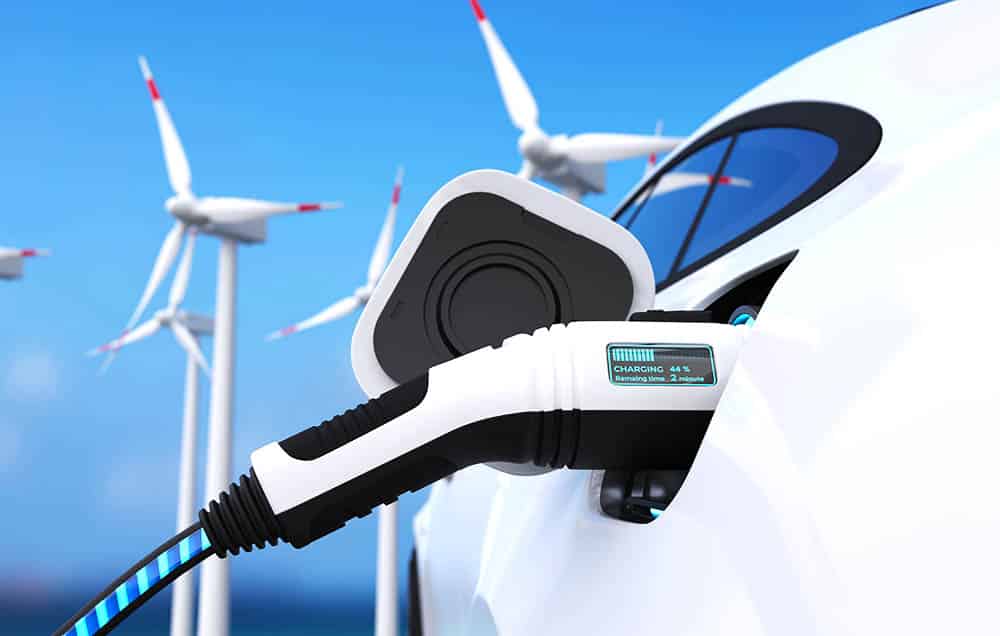In today’s world, the need for sustainable solutions is becoming increasingly evident. The transportation sector, in particular, plays a significant role in contributing to greenhouse gas emissions and other environmental issues. However, with the advancement of technology and increasing awareness, there has been a significant push towards greener transportation alternatives. This article will delve into the various sustainable solutions that are revolutionizing transportation.
Electric Vehicles: Driving Towards a Greener Future
Electric vehicles (EVs) have emerged as one of the most exciting and promising sustainable solutions in the transportation sector. With zero tailpipe emissions, EVs provide an environmentally friendly alternative to traditional gasoline and diesel-powered vehicles. They are powered by electricity and can be charged using renewable energy sources.
One of the main advantages of EVs is their potential to reduce greenhouse gas emissions. According to research conducted by the Union of Concerned Scientists, EVs produce significantly fewer emissions compared to gasoline-powered vehicles, even when accounting for the emissions generated by electricity production.
Moreover, the development of EV infrastructure is expanding rapidly, making it more convenient for consumers to own and operate electric vehicles. Countries around the world are investing in charging stations and offering incentives to promote the adoption of EVs. This infrastructure expansion is crucial for the success of EVs, as it addresses the concern of limited charging options.
Public Transportation: Paving the Way for Sustainable Mobility
Investments in public transportation systems can have a substantial impact on reducing carbon emissions and congestion in urban areas. With larger passenger capacity, public transportation is more energy-efficient and can significantly reduce the number of individual vehicles on the road.
Many cities around the world are prioritizing the development of electric buses and trains, further enhancing the sustainability of public transportation. Electric buses produce zero emissions and have the potential to reduce air pollution in densely populated areas. Additionally, advances in battery technology are enabling longer ranges and faster charging times, making electric buses a feasible and environmentally friendly option.
Furthermore, the integration of smart technologies into public transportation systems allows for optimized routes, efficient scheduling, and reduced energy consumption. These technologies can enhance the overall efficiency of public transportation and improve the passenger experience.
Shared Mobility: Reducing the Number of Vehicles on the Road
The concept of shared mobility has gained significant traction in recent years, primarily due to the rise of ride-hailing platforms and car-sharing services. Shared mobility, including services like Uber and Lyft, promotes the utilization of vehicles by multiple users, reducing the overall number of vehicles on the road.
By leveraging technology to connect drivers and passengers efficiently, shared mobility services maximize vehicle occupancy rates. This leads to reduced congestion, lower emissions per passenger, and more efficient use of resources. Additionally, these services often have requirements for eco-friendly vehicles, such as hybrid or electric cars, further contributing to sustainability.
Bicycles and Micromobility: A Sustainable Alternative
Bicycles and other forms of micromobility, such as scooters and electric bikes, have gained popularity as sustainable alternatives for short-distance travel. These vehicles produce zero emissions and provide an affordable, healthy, and efficient mode of transportation.
Cities around the world are implementing infrastructure improvements to accommodate bicycles and promote cycling as a viable transportation option. Dedicated bike lanes, bike-sharing programs, and incentives for bicycle commuters are some of the initiatives aimed at encouraging the adoption of sustainable micromobility solutions.
Important Considerations for a Sustainable Transportation Future
While the aforementioned solutions hold great potential, there are important considerations that need to be taken into account for a truly sustainable transportation future.
1. Renewable Energy Sources: For electric vehicles to truly lower emissions, it is crucial that the electricity powering them comes from renewable sources. A transition to renewable energy generation is necessary to ensure the overall sustainability of the transportation sector.
2. Lifecycle Impacts: It is important to consider the lifecycle impacts of sustainable transportation solutions. While EVs may produce fewer emissions during operation, the production and disposal of their batteries can have significant environmental consequences. It is vital to address these challenges and develop sustainable manufacturing and recycling processes.
3. Infrastructure Development: To support the widespread adoption of electric vehicles and other greener transportation solutions, adequate infrastructure must be developed. This includes charging stations, smart grids, and improved public transportation networks. Collaboration between governments, private sector entities, and relevant stakeholders is essential to achieve the necessary infrastructure development.
Summary
As the world becomes more conscious of the environmental impact of transportation, sustainable solutions are gaining momentum. Electric vehicles, public transportation improvements, shared mobility, and micromobility options offer viable alternatives to traditional modes of transportation. However, it is crucial to address considerations such as renewable energy sources, lifecycle impacts, and infrastructure development to ensure a truly sustainable future. By embracing these solutions and proactively addressing challenges, we can revolutionize transportation and pave the way for a greener world.
- Unleashing the Power of Progress: Crafting an Astounding Growth Strategy - 17 de agosto de 2023
- Evolution Unleashed: Unlocking the Power of Iteration - 17 de agosto de 2023
- Unleashing Unlimited Potential: The Power of Scalability - 17 de agosto de 2023




